Animal safety and bacterial infections are concerns
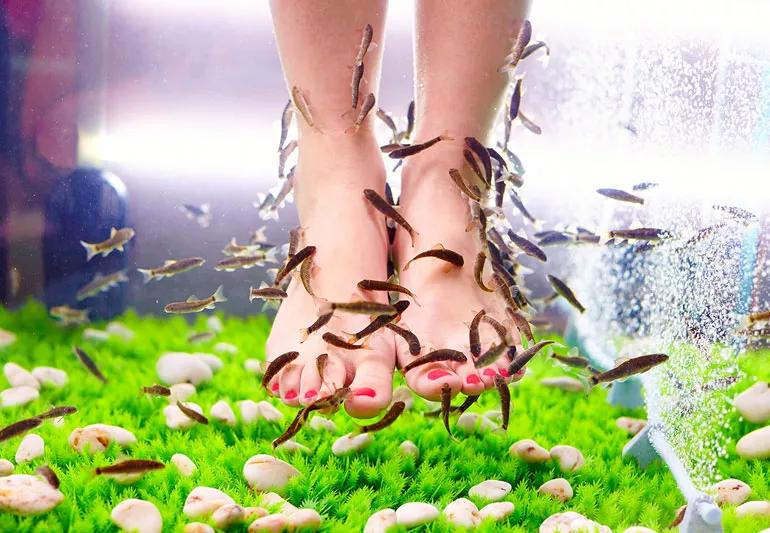
How badly do you want smoother, fresher-smelling feet? For the promise of glowing, baby-soft footsies, would you place them into a cool basin of pint-sized, flesh-eating fish?
Advertisement
Cleveland Clinic is a non-profit academic medical center. Advertising on our site helps support our mission. We do not endorse non-Cleveland Clinic products or services. Policy
Though not a new phenomenon, the “fish pedicure” is a growing trend in the spa world. But in terms of health and medical safety, this is a skin trend that you probably want to pass on.
Dermatologist Shilpi Khetarpal, MD, explains what the fish pedicure is and why you shouldn’t try this funky foot trend.
Well, it’s kind of what it sounds like. Here's how it works: A patron places their feet in a water tub containing carp-like fish called Garra rufa (or “doctor fish”), which are native to the Middle East. In turn, the fish go to work snacking on the person’s dead skin cells.
Those favoring the treatment argue that the fish soften calluses, help lighten dark cuticles and increase circulation. However, experts say the health risks — both to humans and to the fish — outweigh any potential benefits. As a result, fish pedicures are banned in 10 U.S. states, Mexico and areas of Europe.
It’s important to note that sloughed skin isn’t usually on the menu for these fish, which prefer plankton and plant sources; they only eat human skin when they can’t find anything better.
While it may seem like a curious little trend, there are a number of dangers involved in having a fish pedicure.
"Even though this trend may seem natural or interesting to some people, it poses significant risk,” says Dr. Khetarpal.
Advertisement
Here are five reasons she says you should avoid fish pedicures:
Cost constraints make it more likely that salon owners will use the same fish multiple times with different customers, which increases the risk of spreading infection.
“The Garra rufa are imported, purposely starved and then often shared by different patrons,” Dr. Khetarpal explains. “There’s no effective way to disinfect the tubs or the fish themselves. Many spas will simply reuse the fish.”
She cites European tests conducted in 2011 of imported Garra rufa fish, which unearthed bacterial strain Streptococcus Agalactaie group B.
“This bacteria can cause pneumonia, bone and joint infection and bloodstream infections,” Dr. Khetarpal says. Another case report in 2017 found that this treatment may cause mycobacteriosis.
Generally, these fish nibble at dry, dead skin while leaving healthy skin and nails intact. But a woman in her 20s reported severe toenail injuries after a fish pedicure.
The scariest part? She didn’t feel any pain during the pedicure to warn her of injury; damage to her nail matrix wasn’t visible until the nails attempted to grow out – three to six months later.
In this case, the biting fish caused trauma that stopped nail plate production in multiple toenails. The woman was diagnosed with onychomadesis, a condition that causes nails to shed, which often results in nail loss.
“Even though the fish are not targeting the nail bed, they chew on the cuticle, which can affect the stem cells in the nail plate,” Dr. Khetarpal notes. “It’s a slow process, but often you see lifting of the nail.”
Here’s another twist. You may not even be sharing the tub with Garra rufa but rather another cheaper, more aggressive fish variety called Chin-Chin.
These Chinese fish look similar but they grow teeth. As a result, they can bite and draw blood, which further raises your risk of infection.
Besides all the risks to humans, this practice may be considered inhumane to the fish. The pedicure process requires starving the Garra rufa to make them feed off people’s dead skin.
According to the U.S. Fish and Wildlife Service, Garra rufa could pose a threat to native plant and animal life if released into the wild because these fish aren‘t native to the United States.
So, before you dive in, a more traditional, fish-free pedicure is probably the better, safer option.
Advertisement

Sign up for our Health Essentials emails for expert guidance on nutrition, fitness, sleep, skin care and more.
Learn more about our editorial process.
Advertisement

Color, texture or shape changes may signal a larger medical issue
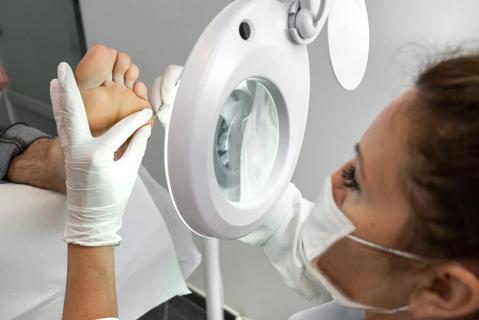
Safety, hygiene and technician training are among the biggest benefits of a ‘medi pedi’
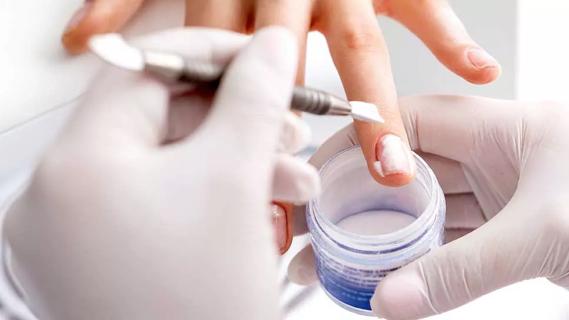
These manicure techniques vary in terms of longevity, hygiene and overall nail health
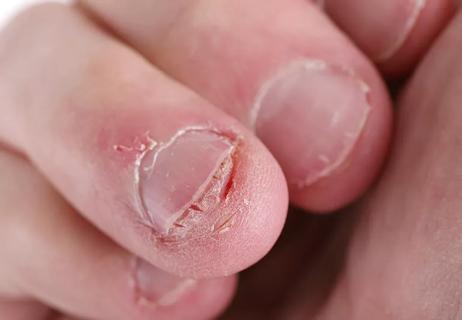
A combination of treatments can help you conquer the compulsion
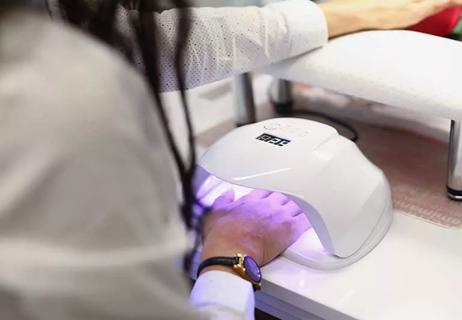
The temporary nail damage is bad, but the cumulative UV exposure could be worse
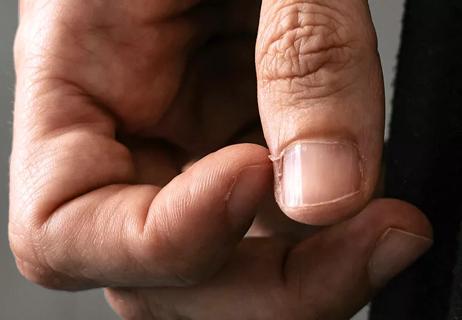
Resist the urge to bite, tear or rip off those little pieces of skin
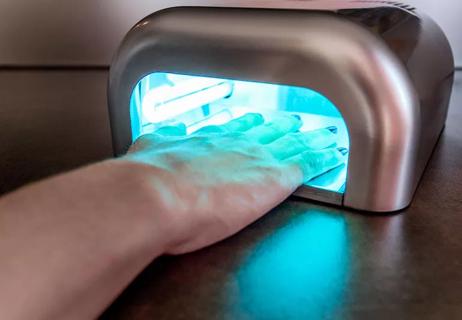
Frequent manicures, high-watt bulbs increase potential
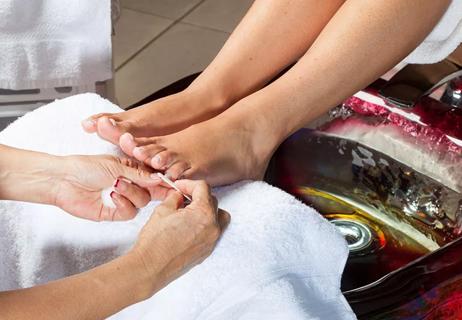
Make sure your salon is clean and sterilizes its instruments

Even small moments of time outdoors can help reduce stress, boost mood and restore a sense of calm

A correct prescription helps your eyes see clearly — but as natural changes occur, you may need stronger or different eyeglasses

Both are medical emergencies, but they are very distinct events with different causes